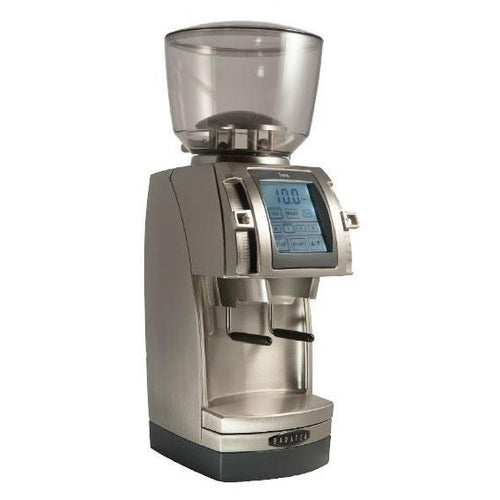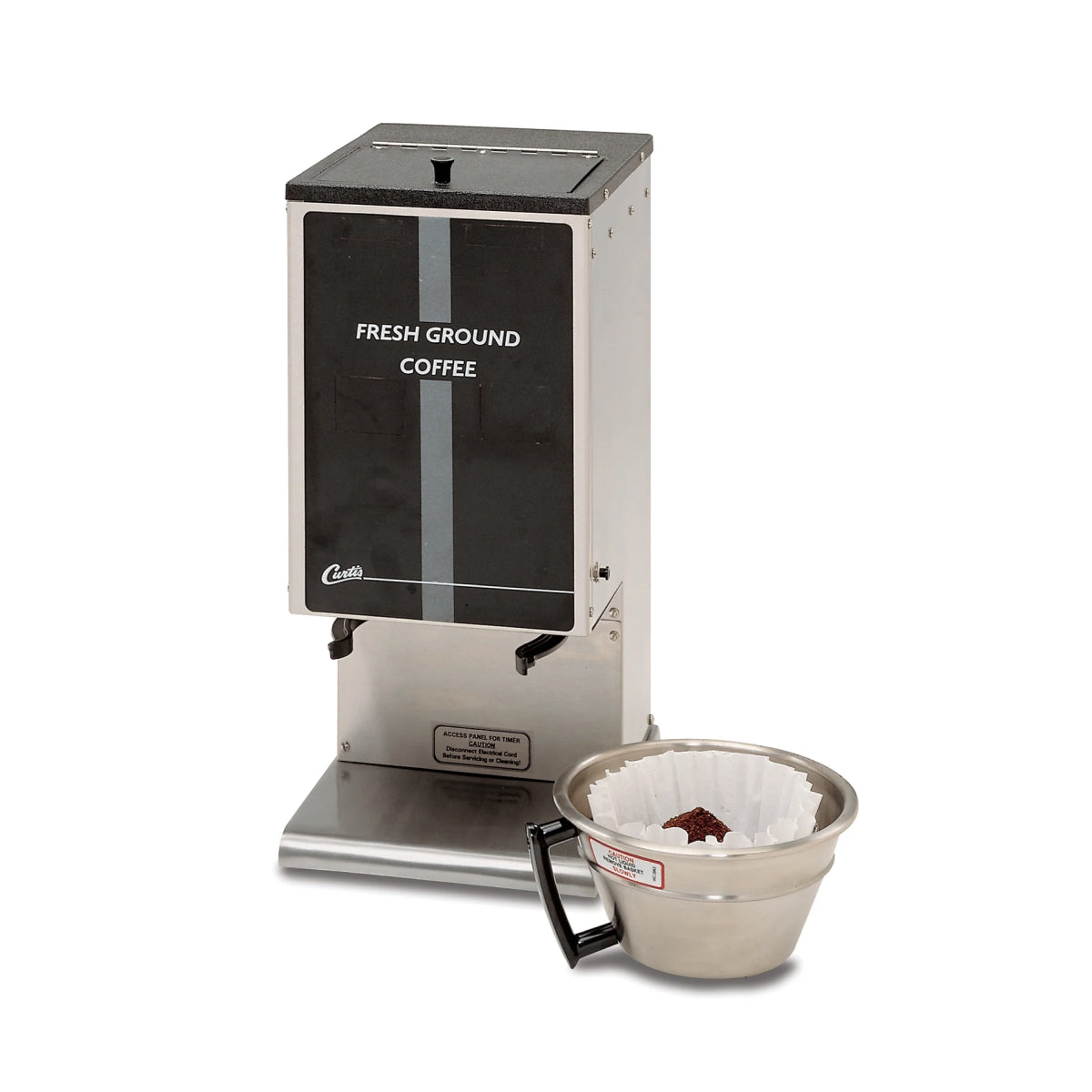Industrial Coffee Grinder: A Comprehensive Guide for Large-Scale Brewing
Industrial Coffee Grinder: A Comprehensive Guide for Large-Scale Brewing
Blog Article
Exactly How to Choose the Perfect Industrial Coffee Mill for Your Company
Selecting the excellent industrial coffee mill for your service is a multifaceted choice that requires mindful consideration of numerous crucial variables. It is important to evaluate your certain grinding needs, consisting of the volume of coffee refined and the desired work consistency, as these components directly influence flavor and client fulfillment. In addition, comprehending the numerous kinds of mills readily available can considerably influence your operational performance. As you browse these considerations, one need to likewise weigh the ramifications of spending plan and upkeep. What various other aspects could make or damage your option?
Assess Your Grinding Demands
When choosing an industrial coffee mill, one should first evaluate their grinding requirements to guarantee optimum efficiency and consistency. This initial examination involves comprehending the volume of coffee to be processed daily, along with the preferred work dimension for various brewing methods. A high-capacity grinder might be required for businesses serving large amounts of coffee, while smaller sized operations might locate a much more portable version adequate.
In addition, it is vital to consider the kinds of coffee beans being used, as various beans might need details grinding techniques to accomplish the most effective flavor profile. For circumstances, oily beans may require a grinder developed to manage such attributes without clumping or overheating.
An additional important aspect is the needed grind uniformity. Specialized coffee organizations usually require precise work dimensions to boost removal and taste, making it important to choose a grinder that can supply consistent outcomes. Lastly, evaluating the readily available room and electrical requirements will certainly help in selecting a mill that fits seamlessly right into your operational workflow. By thoroughly analyzing these factors, services can make enlightened choices that align with their coffee grinding demands, inevitably leading to a superior item and completely satisfied consumers.
Understand Grinder Types
Understanding the various kinds of industrial coffee grinders is essential for making an educated selection that fulfills particular functional needs. There are mostly two categories of mills: blade grinders and burr mills.
Blade mills use rotating blades to slice the coffee beans, resulting in an irregular grind size - Industrial Coffee Grinder. While they may be extra budget-friendly, they are usually not appropriate for industrial applications where accuracy is necessary
On the various other hand, burr grinders offer an extra consistent work by squashing the beans between 2 surfaces. They can be further classified right into flat burr and cone-shaped burr grinders. Flat burr mills offer a constant work dimension and are typically favored for coffee preparation, while conical burr mills are versatile and can manage an array of mixture approaches, from espresso to French press.
When selecting a mill, think about the particular requirements of your business, including preferred work consistency, manufacturing volume, and the types of coffee beverages you plan to provide - Industrial Coffee Grinder. Each grinder kind has its advantages and constraints, so comprehending these subtleties enables informed decision-making that aligns with functional goals
Evaluate Work Dimension Uniformity
Attaining work dimension uniformity is vital for producing high-quality coffee, as variants in particle dimension can significantly influence extraction and flavor. When choosing a commercial coffee grinder, it is essential to assess how well the maker preserves uniformity in grind size throughout different batches. Inconsistent grind sizes can bring about irregular extraction, leading to a cup that might taste weak or overly important source bitter.
To assess work dimension uniformity, think about grinders with features such as flexible work setups and high-grade burrs. Burr mills, in certain, succeed in generating uniform bit sizes compared to blade mills. The material and form of the burrs play an essential duty, with stainless-steel and ceramic options offering resilience and accuracy.

Consider Production Capability
In the hectic globe of coffee manufacturing, thinking about manufacturing capability is critical for services aiming to satisfy need without sacrificing high quality. The production capacity of a commercial coffee mill directly influences a business's capability to fulfill orders successfully, handle inventory, and reply to varying market trends.
When examining production capability, it is important to review the mill's output rate, generally determined in extra pounds per hour. This measurement ought to line up with your service's forecasted sales volume and growth targets. A coffee shop with a high turnover may call for a grinder that can process numerous hundred pounds daily, while a smaller operation may suffice with a lower ability version.
Furthermore, think about the kind of coffee being processed. Various beans and blends may influence grinding rate and efficiency, requiring a grinder efficient in handling varied production demands. It's likewise worth factoring in the mill's ability to keep regular quality under high result conditions, as any type of variations can affect the last item.
Eventually, selecting a grinder that matches your organization's manufacturing capability will ensure you stay affordable and receptive to customer expectations.

Budget and Upkeep Aspects
When reviewing the appropriate industrial coffee maintenance, budget plan and grinder elements play a significant duty in the total decision-making process. A first financial investment in a high-grade grinder can generate long-lasting benefits, but it's vital to establish a clear spending plan that straightens with your business's operational requirements. Take into consideration both the acquisition price and prospective functional prices, such as power usage and substitute components.
Industrial coffee mills require regular upkeep to ensure ideal efficiency and long life. Review the producer's recommendations for upkeep, consisting of cleaning timetables and parts replacement, as these will affect lasting operational prices.

Investing in a grinder that is sturdy yet simple to maintain can save cash with time. While lower-priced options might be tempting, they may sustain greater maintenance expenses and reduced performance. Ultimately, stabilizing preliminary expenses with long-term maintenance and functional effectiveness will guide you to the most effective selection for your business's coffee grinding demands.
Conclusion
Selecting the suitable industrial coffee mill necessitates a detailed assessment of grinding requirements, mill kinds, grind dimension consistency, production capacity, and budgetary considerations. By focusing on these variables, companies can ensure the acquisition of a trusted, efficient grinder that fulfills details operational demands. A well-chosen grinder not only enhances the high quality of the coffee created however also contributes to the total success and earnings of the business. Long-lasting efficiency and upkeep convenience must go stay central to the decision-making procedure.
Specialty coffee businesses typically demand precise grind sizes to improve extraction and flavor, making it vital to pick a mill that can supply uniform results. Apartment burr grinders provide a regular grind size and are commonly preferred for coffee preparation, while conical burr mills are functional and can take care of a range of brew techniques, from espresso to French press.
When selecting an industrial coffee mill, it is important to evaluate how well the maker maintains harmony in work dimension throughout different sets. Burr grinders, in particular, stand out in creating consistent fragment dimensions compared to blade mills.Choosing the ideal industrial coffee grinder necessitates a thorough examination of grinding requirements, mill types, grind dimension uniformity, production ability, and budgetary considerations.
Report this page